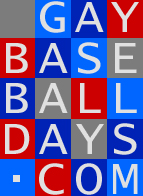They’re here, they’re queer – they’ll take two beers.
Sports remain a bastion of homophobia – just the other day activists blasted Philadelphia Eagles receiver Terrell Owens for comparing gays to rodents – but many major league teams, including the Mets, are now rolling out the welcome mat for gay and lesbian fans.
Half of baseball’s 30 franchises have hosted gay-related events at home games since 2001.
“Our job is to make everyone feel welcome,” says Kathy Killian, the Phillies’ director of group sales. “We open our doors to anybody who wants to buy baseball tickets.”
But as the Phillies learned last week, clubs that cater to gay fans will draw protests from fundamentalist crusaders and alienate fans who are squeamish about homosexuality. Killian says she received a few dozen complaints, mostly from people associated with Repent America, an anti-homosexual group; a minor scuffle broke out at Citizens Bank Park between Repent America protesters and gay fans.
“We are Christian people and we saw this as an opportunity to evangelize,” says Michael Marcavage, director of Repent America.
Cyd Zeigler, one of the organizers of “Out @ the Ballgame,” a night for gay and lesbian fans at Shea Stadium on Sept. 13, says the Mets seem happy to sell them tickets but are nervous about potential controversy; Mets spokesman Jay Horwitz said the club welcomed all fans but declined to answer questions about the event.
“They want our money,” says Zeigler, an editor at the New York Blade and Outsports.com, “but they don’t want the publicity.”
Other teams, however, haven’t been so torn about embracing gay fans and their cash.
“I was surprised by how open the Phillies have been,” says Larry Felzer, organizer of Gay Community Day at the Phillies’ Citizens Bank Park on Monday. “I expected some hesitation.”
Maybe that’s because, despite protests and scuffles, the vast majority of baseball fans don’t seem to care. The total attendance for Monday’s Gay Community Day was 42,031, Killian says, so the complaints represent just a fraction of the fans at the game.
“This is the way of the world,” Killian says. “You might see two guys kissing, and although fans don’t have to feel comfortable with that, they do understand we can’t control everybody’s behavior.”
Four teams will host “gay days” at home games this month alone. The Phillies drew almost 1,500 gay fans to Monday’s game against Colorado. The Oakland A’s welcomed gay groups yesterday, and the Chicago Cubs, who have drawn 2,000 to gay days in 2002 and 2003, will play host to gay fans today. Boston’s gay community has its day at Fenway Park tomorrow.
The Toronto Blue Jays held Pride Community Day on June 24. The San Francisco Giants, meanwhile, will play matchmaker on Sept. 1 with “LGBT Singles Night OUT.” The Atlanta Braves, Los Angeles Dodgers, Minnesota Twins, Pittsburgh Pirates and Texas Rangers have also held gay-themed events in recent years. The Florida Marlins, Baltimore Orioles, and Chicago White Sox have sponsored AIDS awareness days with extensive input from the gay community.
With the exception of the Blue Jays, whose Pride Community Day was organized by the club’s front office, gay-themed events at ballparks are organized by gay fans who, like Little League teams, church groups and unions, want to root for the home team with their friends and families.
“Left to their own devices, teams wouldn’t do this,” says Zeigler. “But if we sell enough tickets, they’ll give us a discount on ticket prices, put our participating groups’ names on the scoreboard, things like that.”
In other words, baseball is treating gay fans like everyone else.
